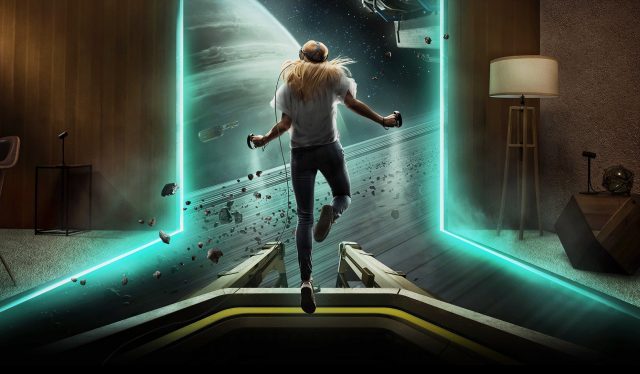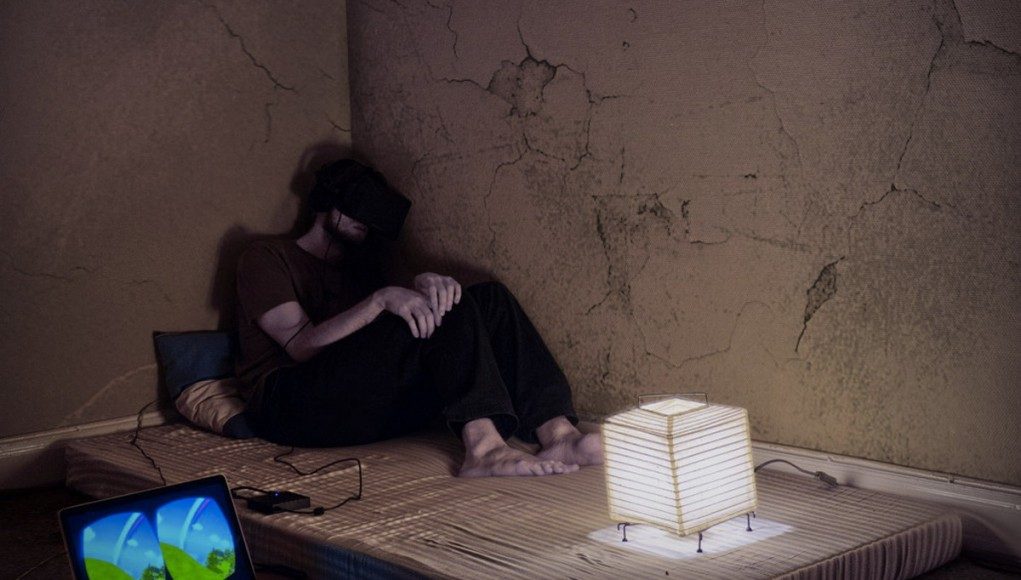“VR is a Gimmick”

This one is just frustrating, often because it comes from people who have never tried a full-featured VR headset (sorry, Cardboard, Gear VR, and Oculus Go don’t count, for so many reasons that I can’t get into in this article).
Despite their inexperience with the technology, somehow deep down in their heart… they know that VR is a “gimmick.” This is generally the same as saying VR is “fad,” accusing it of being pure novelty that’s just a flash in the pan. What evidence do they cite for these claims? Usually some variation of “VR games are just tech demos” or “VR doesn’t add anything.”
So, Mr. or Ms. “Gimmick,” I know your heart is telling you that VR is bad and I’m not going to argue against your opinion with my own opinion because I don’t think that would mean anything to you. But I will present the data that shows that you’re wrong.
Yes, the overall library of VR content in 2020 is not as large in size or scope as mainstream games. The VR market still an order of magnitude smaller, so it’s understandable that the games are less ambitious on average (because the return on investment for developers is smaller). And yet, there are VR games out there which rank as highly as some of the best rated non-VR games ever.
Half-Life: Alyx is the most recent example. Despite the highest possible stakes—as Valve’s first Half-Life game in more than a decade, and its first full-fledged VR title—the game has been universally praised.
Users have rated it better than all prior Half-Life games, pushing it to become one of the best rated games ever on Steam. A 98% positive rating on Steam means that 98% of people who played the game—regardless of who they are, what their expectations were, what PC specs they had, or what headset they used—have come out and said “Yes I would recommend this game to others.” 98%—that’s “instant classic” territory.
Aggregate review scores from critics across the gaming industry have rated Half-Life: Alyx as the best PC game of 2020 (so far) and the 22nd best PC game ever, according to Metacritic, surrounded by PC gaming classics like Divinity: Original Sin II, Unreal Tournament 2004, Starcraft II: Wings of Liberty, and Minecraft.
“Ok,” I hear you saying, “but that’s just one game.” Sure, but there’s more great VR games you’ve probably never ever heard of because they don’t have the recognition of a Half-Life game. Here’s 10 you should check out.

And Half-Life: Alyx is far from the only major name you’ll find in VR. How about Star Wars: Vader Immortal, a three-part VR narrative adventure that makes you feel like you’re the hero in a Star Wars movie. Heard of Skyrim? Of course you have. Guess what—you can play it in VR. And why not get your drift on with DiRT Rally 2 in VR while you’re at it. Want to go off-world? Check out No Man’s Sky and Elite Dangerous, both with full-fledged VR modes. Or maybe you’ve rather fight zombie hordes? Step into The Walking Dead: Saints & Sinners. I could go on.
Yes, VR has arcade games too. And guess what? People love them. Beat Saber is the best selling VR game to date because of how it masterfully mixes rhythm gaming with the physicality of VR. It’s been so successful that Facebook bought the studio that made the game.
On console side, Sony has curated an excellent library that includes some of the best titles that you can find on PC VR, and a handful of excellent exclusives. Sony believed in VR enough to not only develop their own headset but to set some of its talented first-party studios on making exclusive content.
Astro Bot: Rescue Mission (2018), made by Sony’s JAPAN Studio, is one of the best games on any platform, and the 31st best rated game in the entire six year catalogue of PS4 games, according to Metacritic—right up there with the likes of The Witcher 3, Sekiro: Shadows Die Twice, Monster Hunter: World, and Rez Infinite (which also happens to have VR support).
Meanwhile, Blood & Truth (2019), created by Sony’s London Studio, has some of the most impressive virtual human graphics and performance seen anywhere in VR, all while weaving a story around action-packed shooter gameplay.
Considering both the current size of the VR market and how new and different VR is as a medium for game design, the amount of quality content available so far is actually quite surprising. There are many working in the VR industry not because it’s the most profitable thing they could be doing right now—Valve was well aware that Alyx would sell only a fraction of what a non-VR game would—but because they genuinely believe in the massive potential of the technology and want to contribute to its development.
– – — – –
I think the reason why some people tend to be ‘hostile’ toward VR is actually the result of a misconception. There are people out there who simply don’t want VR and may never want VR, and that’s fine. But to them, VR might seem like a threat to the non-VR gaming that they know and love. The misconception is this: nobody who is well read in VR believes that VR will replace non-VR gaming. It’s a new medium for gaming, not ‘the future of gaming as we know it’.
This would be like saying “video is going to replace radio,” or “smartphones are going to replace computers,” neither of which are true, because one is not the future of the other—they’re different mediums.
I’m confident that in a few more years, these supposed ‘reasons why VR won’t become a thing’ will be clearly understood to be wrong, only to be replaced with some new arguments that will—despite their intent—underscore how far VR has come since 2020.
Are there other common arguments out there that you often hear? Do you have a rebuttal? Let’s have a (considerate) conversation in the comments below!







